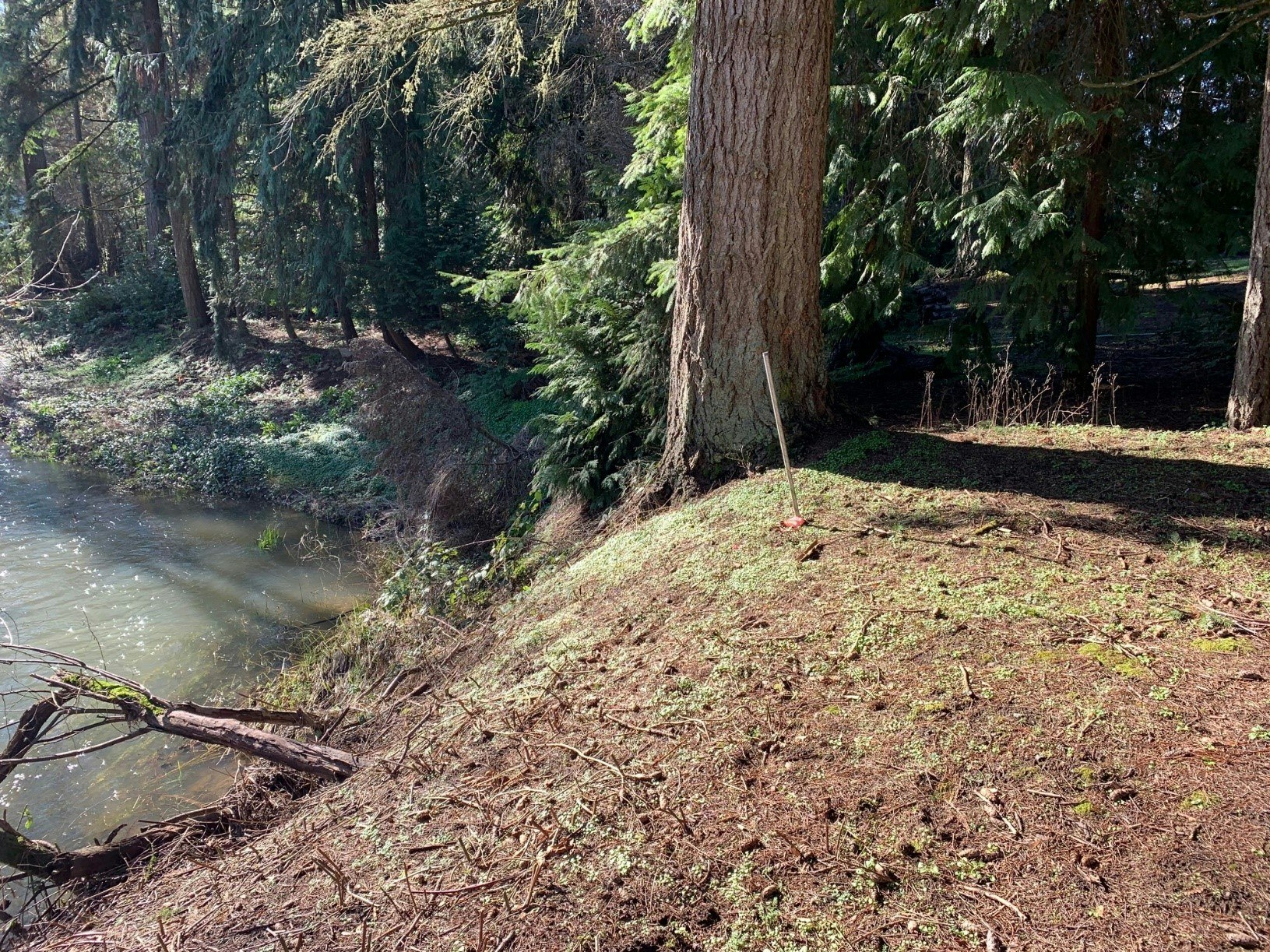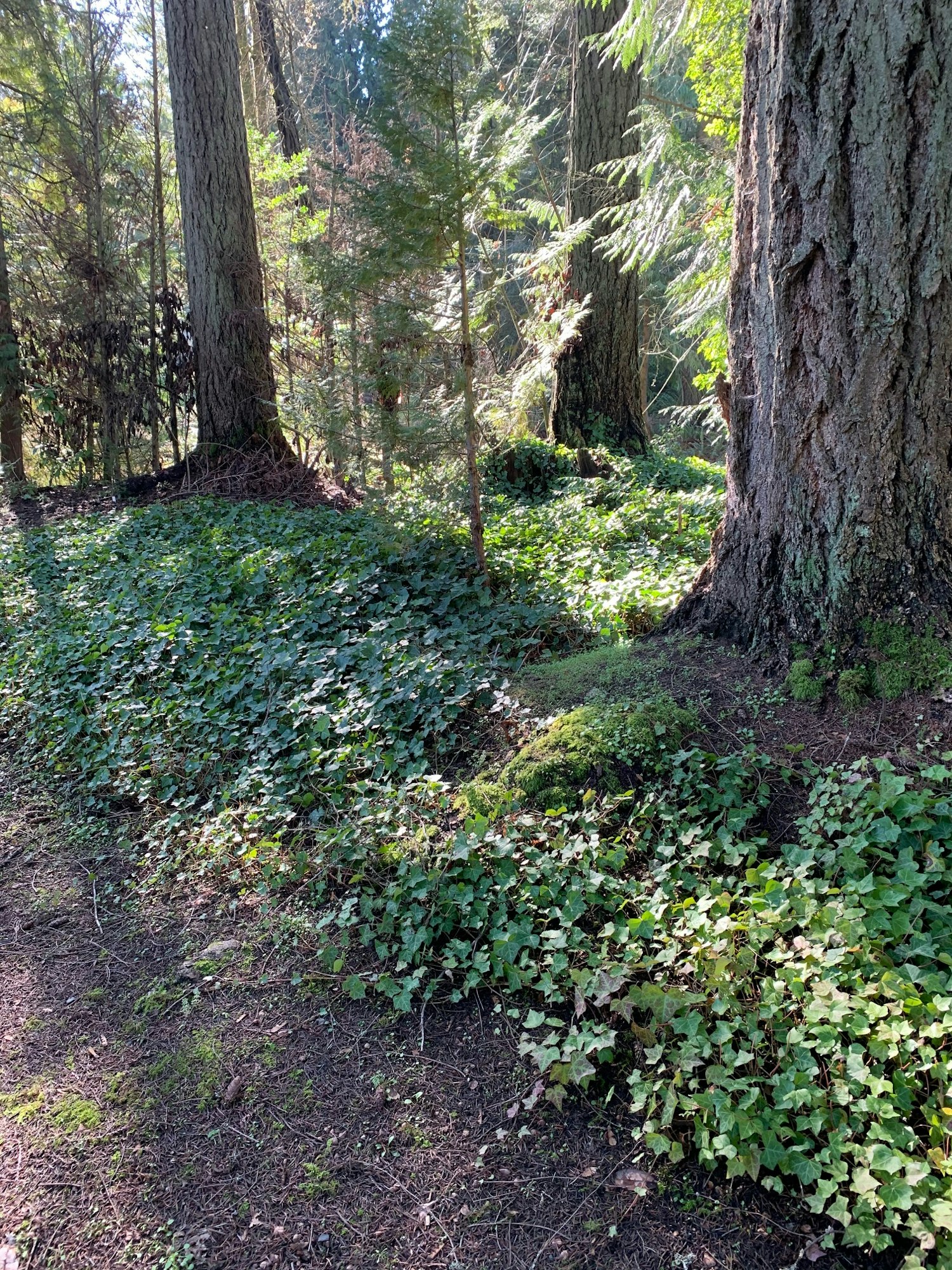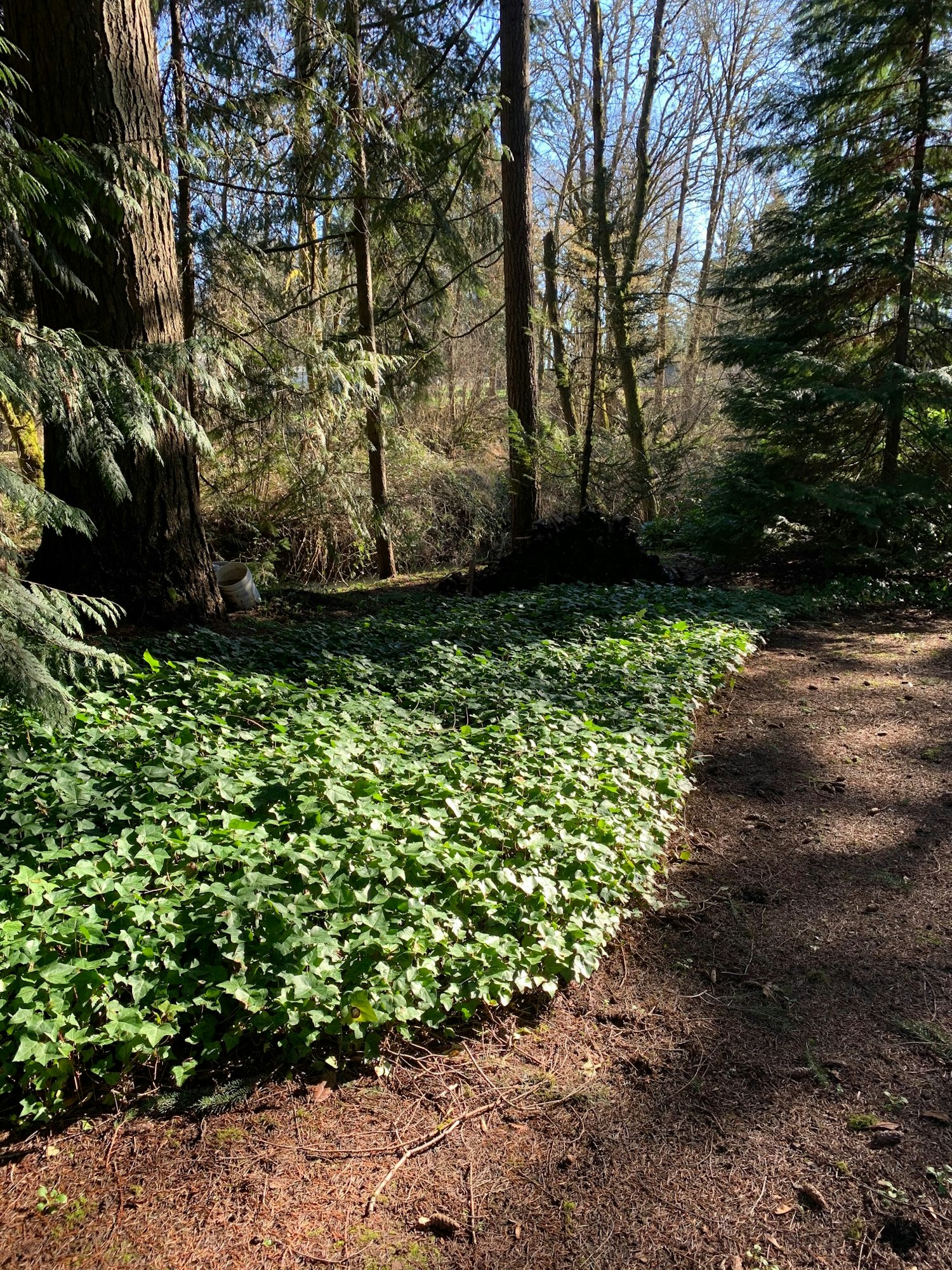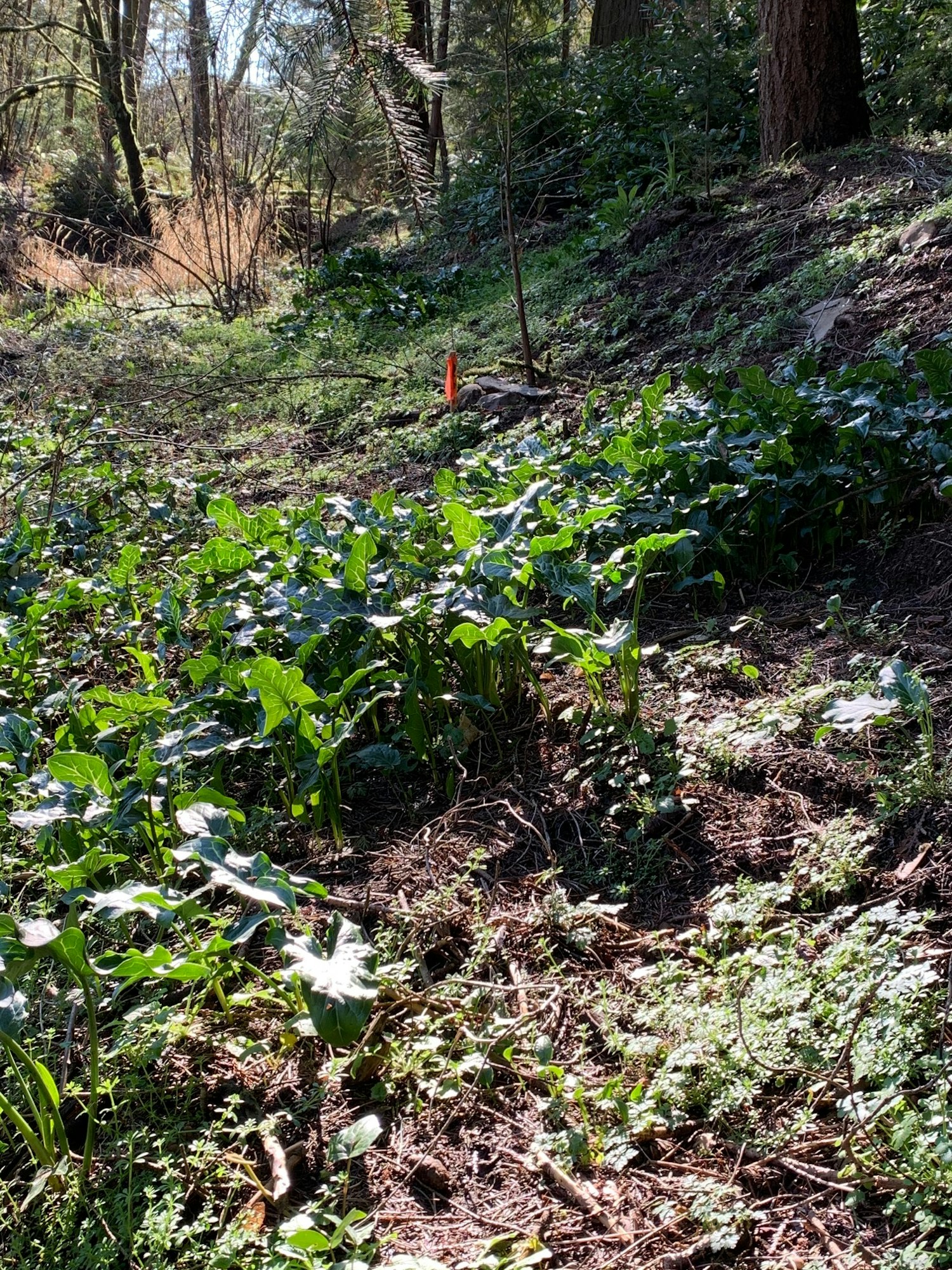Hazel Road Riparian Revegetation
This project addressed the degraded riparian quality of the north bank of McNulty Creek along approximately 330 feet of the stream, encompassing two separately owned properties. A licensed restoration crew was hired to treat and remove non-native, invasive plants and replant the treated areas with site appropriate native vegetation. Noxious weed species were removed from the riparian area as well as other parts of the properties to prevent future infestations. The crew performed several herbicide applications and two plantings. The planting will develop a diverse and healthy native plant community that will improve aquatic and terrestrial habitat, help stabilize soils and improve soil conditions, reduce thermal loads, and lead to future sources of wood for in-stream habitat and complexity.
Location: Two separately owned properties along McNulty Creek in St. Helens, OR.
Partners: Oregon Watershed Enhancement Board (OWEB), Scappoose Bay Watershed Council (SBWC), Private landowners
Funding Awarded: From the Oregon Watershed Enhancement Board (OWEB) Small Grant Program - $14,279
Project Completion Date: June 2022
The displacement of native riparian plant communities by invasive plants is identified as one of the main threats to salmon habitat in the Scappoose Bay watershed. Noxious weeds reduce biological diversity, crowd out native species that provide important nutrients and complexity to aquatic habitats, increase solar exposure by limiting tree and shrub recruitment, destabilize streambanks, and contribute to decreased water quality. This project spanned two contiguous properties. McNulty Creek defines the southern border of both properties. The property to the east had no vegetative cover along the streambank. However, the riparian area was strongly dominated by noxious weeds, containing almost no native flora except for a few conifer trees along the mid and upland area. This was cleared of Himalayan blackberries in the fall of 2019. Previous to this, the riparian area on this property consisted almost entirely of invasive blackberries. The riparian area throughout the western property was in very poor condition with regard to vegetation. The current and former property owners are avid gardeners and unwittingly planted and spread undesirable invasive species down into the riparian area.
McNulty Creek is a small stream within the Scappoose Bay Watershed that drains 7,696 acres to Scappoose Bay, which ultimately empties to the Columbia River. McNulty Creek hosts ESA-listed Coho in addition to other sensitive wildlife species like native turtles and amphibians. Its headwaters are mostly located on industrial timberland in the town of Warren. From there it flows about 2.5 miles through rural residential areas where small homesteading and livestock operations are common on parcels usually ranging from 5 to 40 acres. Throughout much of this area, riparian buffers are thin, if present at all. The last approximately 2.5 miles of the creek flow through a more densely populated area within the City of St. Helens. This area is characterized by smaller tax lots generally between 1.5 to 5 acres. Along the downstream extent of McNulty, there is a more consistent presence of tree species throughout the riparian area. However, due to development and gardening activities there is also a heavy presence of noxious weeds throughout much of the riparian areas.
The goal of this project was to restore riparian buffers and native plant communities to this stretch of McNulty Creek. The restoration crew treated Yellow archangel, Italian arum, Shiny geranium, English ivy, Yellowflag iris, and other species as appropriate with herbicides approved for use around aquatic areas. 1,750 native plants were installed throughout the project area during plantings that occurred in the fall of 2020 and 2021. One landowner performed frequent manual removals of ivy and arum regrowth and small supplemental plantings which greatly contributed to the success of the project.
























